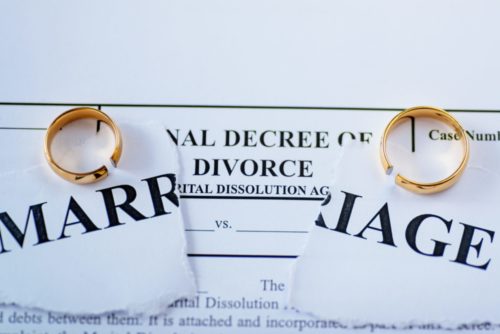
Everyone knows that assets have to be divided up in a divorce, but one potential asset many people forget about is life insurance. If one spouse is holding a policy, it may be considered an asset and it may need to be equitably split. If you are not exactly sure how your life insurance policy could or should be split up, talk to our Bergen County, NJ property division attorneys and learn more about your rights.
Does the Type of Life Insurance Matter?
Yes, the type of life insurance that you are carrying can make a key difference here. This is because one common type of life insurance can carry a cash value, and another type cannot.
Term life insurance: This type of insurance lasts for a certain amount of time, like 10 to 30 years. If the policyholder passes away during that time, the beneficiary will receive a payout. It does not have a cash value and generally will not be split during a divorce.
Whole life insurance: Holding this type of insurance can complicate matters. This is because the policy itself has a cash value that builds up over time. It is also guaranteed to pay out at some point because the policyholder is not immortal and this type of policy does not have any time limitation.
Generally, a whole life insurance policy has to be considered as an asset in a divorce. Sometimes it can be cashed out and distributed to both spouses, who can then use that money to pay down joint debts or pay legal fees. This can be a good idea due to the expense of a whole life policy and the fact that you might now be able to look for a different policy that is a better fit for your new situation.
Can I Be Ordered to Maintain Life Insurance?
In some cases, the spouse who is making alimony or child support payments can be ordered to take out a new life insurance policy. This is meant to provide for a spouse and children if the paying spouse passes unexpectedly and leaves them without the monetary support that they may really need.
Should I Change My Beneficiary?
If you keep a life insurance policy, like a term life policy, in place after the divorce, you may want to change the beneficiary. Most people list their spouses on such policies, but you can change that now. You can also keep your spouse on your policy though. This is especially wise when:
- You have minor children that your spouse will be responsible for
- This policy’s payout could help cover your alimony or child support payments
- You trust your spouse and are on generally good terms with them
- Your career can be considered risky
Consult with a Property Division Attorney
If you want to discuss your situation and learn more about how a divorce attorney can help you protect yourself and your assets, schedule a consultation with Townsend, Tomaio & Newmark. We can tell you more about equitable distribution and what we can do to assist you with the divorce process.